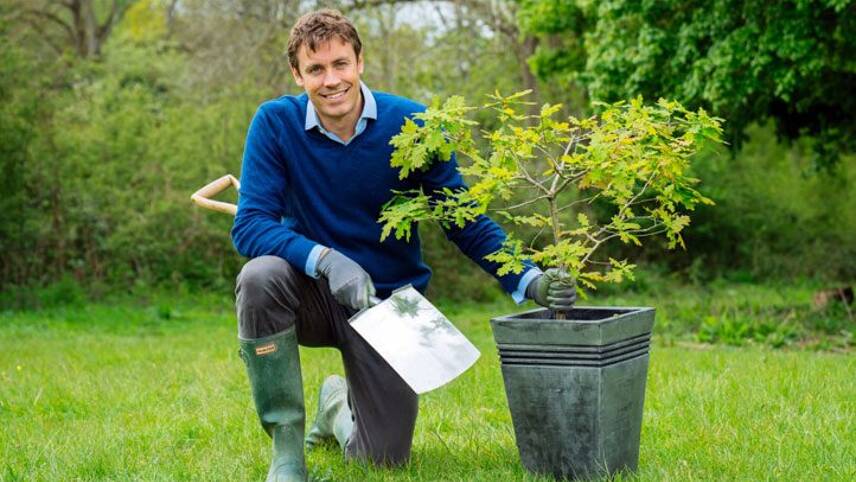Register for free and continue reading
Join our growing army of changemakers and get unlimited access to our premium content

Pictured: HiPP UK's marketing director Richard Walker planting the scheme's first tree
Under the partnership, 50,000 trees will be planted across the National Trust’s UK estate over a 12-month period. HiPP is helping with the tree planting campaign from the charity with both direct financial donations and through communications campaigns, whereby it will encourage consumers to support the National Trust.
Collectively, the new trees are expected to sequester more than a million kilograms of carbon dioxide.
The partnership will drive progress towards the National Trust’s goal of planting 20 million new trees by 2030, on the road to net-zero. It will also contribute to HiPP’s commitment to becoming a climate-positive company by 2025. The brand’s plan for meeting this milestone is based around the pillars of improving nature, bettering air quality and reducing waste.
HiPP chief executive Stefan Hipp said that the National Trust is a “credible partner that shares our passion and commitment to protecting and growing biodiversity”. The brand’s other main nature commitment is to deliver biodiversity net gain on each of its 8,000 supplier farms.
“We’ve been dedicated to sustainability and nature for over 60 years, but it’s never been more important that we’re thinking about our actions and how they will impact the future for generations to come,” HiPP said.
The news as the UK Government faces pressure to ensure that nature and biodiversity receive appropriate focus at the upcoming G7 Summit. A communique from business leaders to G7 leaders this week urges them to “prioritise national policies to support the development of markets that value biodiversity, natural environments and natural carbon sinks, and nature-positive business activity”.
Building (green) bridges
In related news, housebuilder Thakeham Group has unveiled plans for what is claims is the biggest single biodiversity project for the exclusive use of wildlife in the UK’s history.
The green bridge, to be co-located with the developer’s Wealdcross at Buck Barn site in Sussex, will join up green space on either side of the A24. It will be developed with plants to attract and support local birds, insects and mammals.
Plans for the bridge detail the inclusion of green verges, new hedge lands and woodland cover. Thakeham Homes said it will directly cover the £5m cost of developing the bridge, which it claims is only the fourth of its kind in the UK.
“When the A24 was built, little thought was given to how the road might fragment wildlife and affect biodiversity – but, today, our priorities are very different,” Thakeham Group’s chief executive Rob Boughton said. “This is our opportunity to put it right”.
Sarah George


Please login or Register to leave a comment.